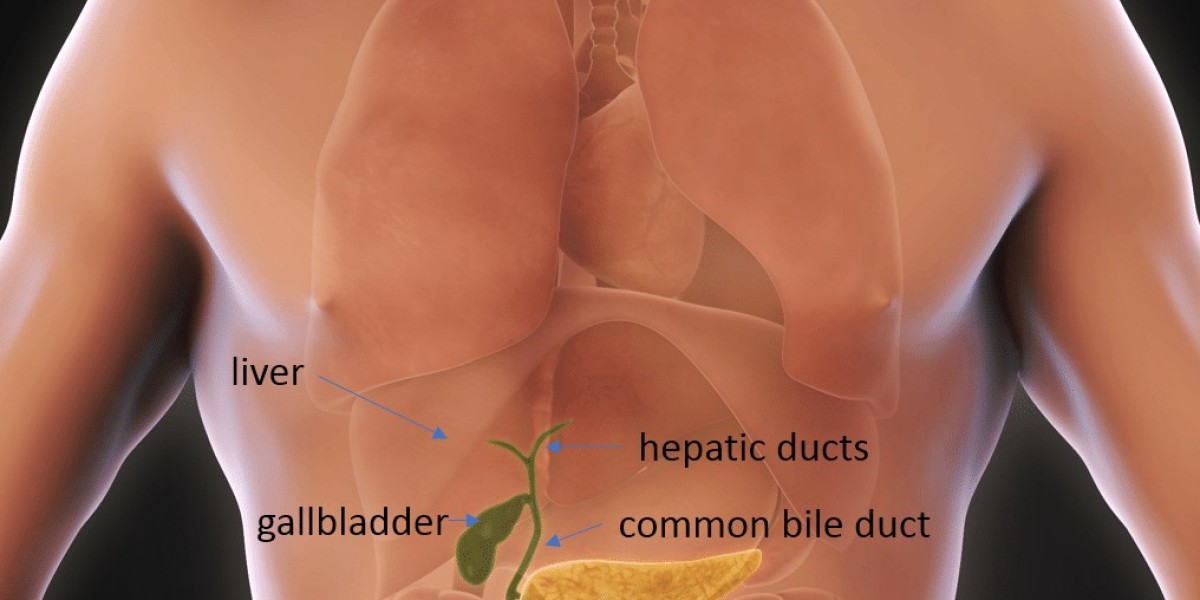Gallbladder issues can cause significant discomfort and disrupt daily life. Whether it's due to gallstones or inflammation, many patients turn to surgical solutions to relieve pain and prevent complications. Gallbladder Surgery in Riyadh (جراحة المرارة في الرياض ) has become a trusted and commonly performed procedure, thanks to advanced medical technologies and specialized care available in the city. This guide explores everything you need to know before considering surgery—from symptoms to recovery.
What Is Gallbladder Surgery?
Understanding the Gallbladder’s Role
The gallbladder is a small, pear-shaped organ located under the liver. It stores bile, a fluid that helps digest fats. When functioning normally, it plays a supportive role in digestion. However, when gallstones form or the organ becomes inflamed, it can lead to pain and infection.
Why Gallbladder Surgery Is Needed
Surgery is typically recommended when the gallbladder causes chronic pain, blocks bile flow, or leads to complications like gallbladder infection (cholecystitis). Removing the gallbladder is not life-threatening and allows people to live normal, healthy lives post-surgery.
Types of Gallbladder Surgery
Laparoscopic Cholecystectomy
This is the most common and minimally invasive method. A few small incisions are made, and a tiny camera guides the removal. Recovery is faster, and scarring is minimal.
Open Cholecystectomy
In more complicated cases, an open surgery may be required. This involves a larger incision and a longer recovery period, but it's effective for patients with extensive gallbladder disease or complications.
Who Is a Candidate for Gallbladder Surgery?
Common Symptoms
Candidates often experience persistent symptoms such as:
Sudden, sharp abdominal pain
Nausea and vomiting
Bloating after meals
Jaundice in severe cases
Diagnostic Process
Doctors usually conduct:
Ultrasound or CT scans
Blood tests
Physical examinations
These help in identifying gallstones, blockages, or inflammation.
Preparing for Gallbladder Surgery in Riyadh
Pre-Surgical Evaluation
Before undergoing Gallbladder Surgery in Riyadh, you’ll go through:
Health assessments
Medical history reviews
Anesthesia consultation
Preparation ensures a safer and smoother surgical experience.
Instructions Before Surgery
You may be asked to:
Fast for 8 hours before surgery
Avoid certain medications
Arrange transportation home post-surgery
What Happens During Surgery?
Step-by-Step Procedure
Anesthesia is administered.
Incisions are made (laparoscopic or open).
The gallbladder is detached and removed.
Closure of incisions and post-operative monitoring.
The entire process usually takes 1–2 hours.
Recovery After Gallbladder Surgery
Hospital Stay and Initial Recovery
Most laparoscopic patients go home the same day.
Open surgery patients may stay for a few days.
Pain is manageable with prescribed medications.
Post-Surgery Care
To ensure optimal recovery:
Avoid heavy lifting for 2–4 weeks
Eat a low-fat, balanced diet
Stay hydrated and walk daily
Most people return to work within 1–2 weeks for laparoscopic and 4–6 weeks for open surgery.
Life Without a Gallbladder
Dietary Adjustments
Without a gallbladder, bile flows directly from the liver to the small intestine. This might cause mild digestive changes. Tips include:
Eating smaller, more frequent meals
Reducing fatty or spicy foods
Including fiber-rich options
Long-Term Health
Most people adapt well and experience fewer digestive issues over time. Regular follow-ups help monitor recovery and health progress.
Why Choose Gallbladder Surgery in Riyadh?
Advanced Medical Facilities
Riyadh is home to world-class hospitals equipped with cutting-edge technology and modern surgical units. This ensures:
Accurate diagnosis
Safe procedures
Faster recovery times
Expert Surgical Teams
Surgeons in Riyadh are trained in both laparoscopic and open techniques, offering personalized care based on each patient's condition.
High Standards of Patient Care
Hospitals and clinics in Riyadh focus on patient comfort, follow-up care, and seamless recovery planning, making it an ideal choice for Gallbladder Surgery in Riyadh.
Risks and Complications to Consider
Possible Side Effects
While generally safe, all surgeries carry some risks such as:
Bleeding
Infection
Bile leakage
Digestive discomfort
Managing Risks
With proper planning, skilled surgeons, and attentive post-operative care, these risks are greatly minimized.
Tips for a Smooth Recovery
Stay Active
Light walking prevents blood clots and aids digestion.
Monitor for Complications
Watch for signs like fever, increased pain, or yellowing of the skin. Contact your doctor immediately if these occur.
Maintain Healthy Habits
Continue with follow-up appointments and adopt a long-term, balanced diet to support your digestive system.
Final Thoughts
Gallbladder Surgery in Riyadh provides effective relief from chronic gallbladder conditions with a high success rate and modern medical support. Whether you're dealing with gallstones or inflammation, the decision to undergo surgery could significantly enhance your quality of life. Riyadh offers the expertise, technology, and care you need for a smooth and confident journey toward better health.
For a trusted and professional surgical experience, consider Royal Clinic Saudia—where patient well-being is always the priority.
⭐ FAQs About Gallbladder Surgery in Riyadh ⭐
❓ What is the recovery time for gallbladder surgery in Riyadh?
Most laparoscopic procedures allow a return to normal activities within 1–2 weeks. Open surgeries may require 4–6 weeks of recovery.
❓ Is gallbladder surgery safe in Riyadh?
Yes, Riyadh offers advanced facilities and experienced surgeons, making the procedure highly safe with low complication rates.
❓ Will I need to change my diet after gallbladder surgery?
Some dietary changes may be necessary post-surgery, such as avoiding high-fat foods and eating smaller meals.
❓ How do I know if I need gallbladder surgery?
Persistent abdominal pain, nausea after eating, and imaging results showing gallstones or inflammation are key indicators.






